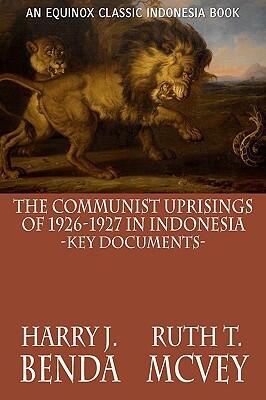
The Communist Uprisings of 1926-1927 in Indonesia: Key Documents
Nog geen beoordelingen
History
Formaat
Paperback
Pagina's
308
Taal
Engels
Gepubliceerd
Oct 6, 2009
Uitgever
Equinox Publishing
Editie
Equinox ed.
ISBN-10
6028397253
ISBN-13
9786028397254
Beschrijving
Ruth T. McVey and Harry J. Benda delve into a transformative period in Indonesian history, focusing on the uprisings sparked by the Indonesian Communist Party between 1926 and 1927. These uprisings were crucial not only for the local political landscape but also for understanding the broader implications of communism in Southeast Asia during the early 20th century. The authors meticulously compile key documents from this turbulent era, providing valuable insights into the motivations, goals, and repercussions of the movements that sought to challenge colonial rule.
Through a blend of primary sources and contextual analysis, McVey and Benda illustrate the complex interplay of social, economic, and political forces that fueled the rebellion. The documents reveal the aspirations of the party and the response from colonial authorities, showcasing the tension between revolutionary ideals and the realities of resistance. Readers gain an understanding of how these events laid the groundwork for future political developments in Indonesia.
Furthermore, the work serves as a pivotal reference for scholars and enthusiasts of history seeking to comprehend the roots of Indonesian nationalism and its struggle against oppression. By preserving these key documents, the authors ensure that the voices of those involved in the uprisings are not lost to time, offering a lens through which the historical narrative of Indonesia can be viewed.
Through a blend of primary sources and contextual analysis, McVey and Benda illustrate the complex interplay of social, economic, and political forces that fueled the rebellion. The documents reveal the aspirations of the party and the response from colonial authorities, showcasing the tension between revolutionary ideals and the realities of resistance. Readers gain an understanding of how these events laid the groundwork for future political developments in Indonesia.
Furthermore, the work serves as a pivotal reference for scholars and enthusiasts of history seeking to comprehend the roots of Indonesian nationalism and its struggle against oppression. By preserving these key documents, the authors ensure that the voices of those involved in the uprisings are not lost to time, offering a lens through which the historical narrative of Indonesia can be viewed.
Recensies
Nog geen beoordelingen
Wees de eerste om dit boek te recenseren en deel je gedachten
Voeg Eerste Recensie ToeLeeslogboek
Geen leeslogboeken gevonden
Begin met het volgen van je leesvoortgang om logboeken hier te zien
Voeg je eerste leeslogboek toeNotities
Geen notities gevonden
Begin met het toevoegen van notities om ze hier te zien
Voeg je eerste notitie toeTransactielogboek
Geen transactielogboeken gevonden
Begin met het volgen van je boektransacties om logboeken hier te zien
Voeg je eerste transactielogboek toe